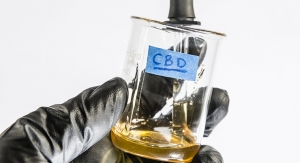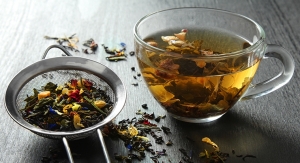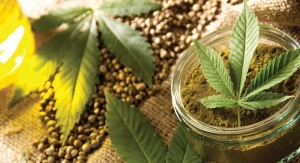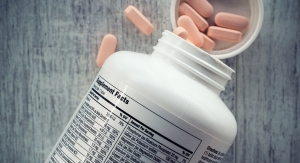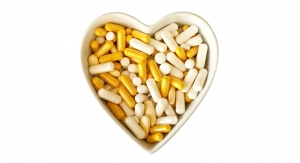08.22.19
Resveratrol, a stilbenoid and phytoalexin, is a potent antioxidant found in many fruits and plants, including the skin of red grapes, Japanese knotweed, raspberries, blueberries, dark chocolate, apples, plums, peanuts, and other sources.
The natural phenolis created in plants due to stressful environmental situations. It’s believed that resveratrol may play a role in preventing or addressing heart disease, Alzheimer’s, and diabetes. Most research involving this antioxidant compound have been conducted on animals and in vitro, so well-controlled human clinical trials are still needed.
The global resveratrol market is estimated to account for total revenue of $97.7 million, according to a report from Future Market Insights. The global resveratrol market is projected to grow at a CAGR of 8.1% in revenue terms from 2018 to 2028.
In recent years, resveratrol as a dietary ingredient has gained considerable traction, as it is used in anti-aging supplements, cosmetic products, medicines, and other end-use applications. Resveratrol also has beneficial effects against degenerative and cardiovascular diseases, which is expected to escalate market growth.
Possible Health Benefits
Heart disease: According to the World Health Organization (WHO), heart disease is the number one cause of death globally. Some animal studies have suggested that resveratrol could decrease the incidence of heart disease. However, research results have varied.
A meta-analysis published in Clinical Nutrition in 2015 explained how resveratrol didn’t drastically influence blood pressure. But high doses of resveratrol supplements may lower systolic blood pressure by creating more nitric oxide, which causes blood vessels to rest. By having a low systolic blood pressure, people could be less at risk for developing heart disease.
Following 10 different studies on cardiovascular health and resveratrol, researchers suggested in the International Journal of Cardiology how resveratrol supplements didn’t affect the risk factors of heart disease, such as total cholesterol, LDL cholesterol, triglycerides, blood pressure, and C-reactive protein.
Alzheimer’s: Since resveratrol has anti-oxidative as well as anti-inflammatory effects, it’s believed to be helpful for people suffering from Alzheimer’s disease.
A clinical trial published in Neurology in 2015 showed that long-term supplementation with high-dose resveratrol in people with mild to moderate Alzheimer’s disease stabilized a biomarker that declines when the disease progresses.
The investigators enrolled 119 participants for the one-year study. The highest dose of resveratrol tested was one gram by mouth twice daily—equivalent to the amount found in about 1,000 bottles of red wine. An “investigational new drug” application was required by the U.S. Food and Drug Administration to test the pure synthetic (pharmaceutical-grade) resveratrol in the study.
Patients who were treated with increasing doses of resveratrol over 12 months showed little or no change in amyloid-beta40 (Abeta40) levels in blood and cerebrospinal fluid. In contrast, those taking a placebo had a decrease in the levels of Abeta40 compared with their levels at the beginning of the study.
“A decrease in Abeta40 is seen as dementia worsens and Alzheimer’s disease progresses; still, we can’t conclude from this study that the effects of resveratrol treatment are beneficial,” said principal investigator, Scott Turner, MD, PhD, director of the Memory Disorders Program at Georgetown University Medical Center. “It does appear that resveratrol was able to penetrate the blood brain barrier, which is an important observation. Resveratrol was measured in both blood and cerebrospinal fluid.”
Diabetes: According to the Centers for Disease Control and Prevention (CDC) type 2 diabetes accounts for approximately 90-95% of all diagnosed cases of diabetes. Resveratrol helps to stop insulin resistance, a condition when cells in muscles, fat, and liver can’t use glucose from blood for energy and don’t react to insulin. Insulin resistance causes high blood sugar levels and in turn, diabetes. A randomized and controlled study published in Nutrition Research included 62 patients with type 2 diabetes mellitus (T2DM) and focused on resveratrol’s role for people with this disease. The study showed administration of resveratrol for three months drastically improved hemoglobin A(1c), systolic blood pressure, total cholesterol, and total protein in T2DM.
The natural phenolis created in plants due to stressful environmental situations. It’s believed that resveratrol may play a role in preventing or addressing heart disease, Alzheimer’s, and diabetes. Most research involving this antioxidant compound have been conducted on animals and in vitro, so well-controlled human clinical trials are still needed.
The global resveratrol market is estimated to account for total revenue of $97.7 million, according to a report from Future Market Insights. The global resveratrol market is projected to grow at a CAGR of 8.1% in revenue terms from 2018 to 2028.
In recent years, resveratrol as a dietary ingredient has gained considerable traction, as it is used in anti-aging supplements, cosmetic products, medicines, and other end-use applications. Resveratrol also has beneficial effects against degenerative and cardiovascular diseases, which is expected to escalate market growth.
Possible Health Benefits
Heart disease: According to the World Health Organization (WHO), heart disease is the number one cause of death globally. Some animal studies have suggested that resveratrol could decrease the incidence of heart disease. However, research results have varied.
A meta-analysis published in Clinical Nutrition in 2015 explained how resveratrol didn’t drastically influence blood pressure. But high doses of resveratrol supplements may lower systolic blood pressure by creating more nitric oxide, which causes blood vessels to rest. By having a low systolic blood pressure, people could be less at risk for developing heart disease.
Following 10 different studies on cardiovascular health and resveratrol, researchers suggested in the International Journal of Cardiology how resveratrol supplements didn’t affect the risk factors of heart disease, such as total cholesterol, LDL cholesterol, triglycerides, blood pressure, and C-reactive protein.
Alzheimer’s: Since resveratrol has anti-oxidative as well as anti-inflammatory effects, it’s believed to be helpful for people suffering from Alzheimer’s disease.
A clinical trial published in Neurology in 2015 showed that long-term supplementation with high-dose resveratrol in people with mild to moderate Alzheimer’s disease stabilized a biomarker that declines when the disease progresses.
The investigators enrolled 119 participants for the one-year study. The highest dose of resveratrol tested was one gram by mouth twice daily—equivalent to the amount found in about 1,000 bottles of red wine. An “investigational new drug” application was required by the U.S. Food and Drug Administration to test the pure synthetic (pharmaceutical-grade) resveratrol in the study.
Patients who were treated with increasing doses of resveratrol over 12 months showed little or no change in amyloid-beta40 (Abeta40) levels in blood and cerebrospinal fluid. In contrast, those taking a placebo had a decrease in the levels of Abeta40 compared with their levels at the beginning of the study.
“A decrease in Abeta40 is seen as dementia worsens and Alzheimer’s disease progresses; still, we can’t conclude from this study that the effects of resveratrol treatment are beneficial,” said principal investigator, Scott Turner, MD, PhD, director of the Memory Disorders Program at Georgetown University Medical Center. “It does appear that resveratrol was able to penetrate the blood brain barrier, which is an important observation. Resveratrol was measured in both blood and cerebrospinal fluid.”
Diabetes: According to the Centers for Disease Control and Prevention (CDC) type 2 diabetes accounts for approximately 90-95% of all diagnosed cases of diabetes. Resveratrol helps to stop insulin resistance, a condition when cells in muscles, fat, and liver can’t use glucose from blood for energy and don’t react to insulin. Insulin resistance causes high blood sugar levels and in turn, diabetes. A randomized and controlled study published in Nutrition Research included 62 patients with type 2 diabetes mellitus (T2DM) and focused on resveratrol’s role for people with this disease. The study showed administration of resveratrol for three months drastically improved hemoglobin A(1c), systolic blood pressure, total cholesterol, and total protein in T2DM.





